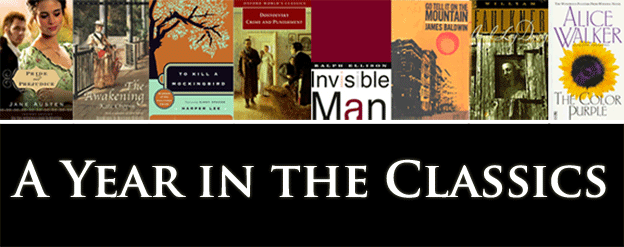
 Okay. So I went to Faulkner with preconceived notions about his difficult and highfalutin writing style. I repent of my forgone conclusions, and can say that I have been converted. I like Faulkner. No, perhaps its love --a more appropriate sentiment as we prepare for the Valentine's Holiday. I am truly delighted to say that thus far, I am in that "cannot put it down" moment with As I Lay Dying .
Okay. So I went to Faulkner with preconceived notions about his difficult and highfalutin writing style. I repent of my forgone conclusions, and can say that I have been converted. I like Faulkner. No, perhaps its love --a more appropriate sentiment as we prepare for the Valentine's Holiday. I am truly delighted to say that thus far, I am in that "cannot put it down" moment with As I Lay Dying .I have cast my fears aside and jumped into this novel, with confidence and dedication and it has been worth it thus far! And as a reader commented, there are laughs to be had in this novel that traces a families journey to bury their mother in her hometown --but there is also anguish, unfulfilled hopes, incongruous, and a captivating desperateness which emerges in a lot of Black literature set in the South (See Jean Toomer's Cane).
Faulkner knows language, which will come to know one's surprise that his has read his work. What I find fascinating and am learning with each chapter of this book is how nibble and agile word use literary fiction can be. As the cliche goes, the sky is the limit and no senses are out of bounds. This book appeals to your sense of sight , hearing, taste and smell:
"There is a little daylight up here still, of color of sulfur matches".
"The sun had gone down behind a bank of a black cloud like a top heavy mountain range, like a load of cinders dumped over there, and there is no wind."
The writing simply takes your breath away. I once had a professor explain to me the difference between high literature and low fiction. Thus far, my Faulkner experience is providing me with everything that draws the distinction between the two. His flexibility to jump between internal and external dialogue, and shift points of view is genius. The masculine and the feminine voices are distinct and natural---the female characters being more emotive and tied to the people around them, while the male characters are largely tied to the earth, which they work. Faulkner is a very intentional author, who makes you think and never misses a opportunity to stun the reader with equal parts simplicity and complexity.
The use of vernacular may present challenges to some readers, but reading out loud alleviates any initial confusion. I like this novel because it drops you head first into a uniquely American Experience. Their Eyes Were Watching God moved me in a similar way. That novel is saturated in the Hurston's expert use of Black vernacular of the Florida muck. The rural farm experience ---while different between the two novels --- draw on parallel themes of poverty, Christianity, the role of neighbors and the neighborhood, and death. I look forward to going back to that novel, once completing As I Lay Dying and comparing notes on use of voice, imagery, literary devices, and setting.
"There is a little daylight up here still, of color of sulfur matches".
"The sun had gone down behind a bank of a black cloud like a top heavy mountain range, like a load of cinders dumped over there, and there is no wind."
The writing simply takes your breath away. I once had a professor explain to me the difference between high literature and low fiction. Thus far, my Faulkner experience is providing me with everything that draws the distinction between the two. His flexibility to jump between internal and external dialogue, and shift points of view is genius. The masculine and the feminine voices are distinct and natural---the female characters being more emotive and tied to the people around them, while the male characters are largely tied to the earth, which they work. Faulkner is a very intentional author, who makes you think and never misses a opportunity to stun the reader with equal parts simplicity and complexity.
The use of vernacular may present challenges to some readers, but reading out loud alleviates any initial confusion. I like this novel because it drops you head first into a uniquely American Experience. Their Eyes Were Watching God moved me in a similar way. That novel is saturated in the Hurston's expert use of Black vernacular of the Florida muck. The rural farm experience ---while different between the two novels --- draw on parallel themes of poverty, Christianity, the role of neighbors and the neighborhood, and death. I look forward to going back to that novel, once completing As I Lay Dying and comparing notes on use of voice, imagery, literary devices, and setting.
Thanks for the encouraging words. Happy reading all.



